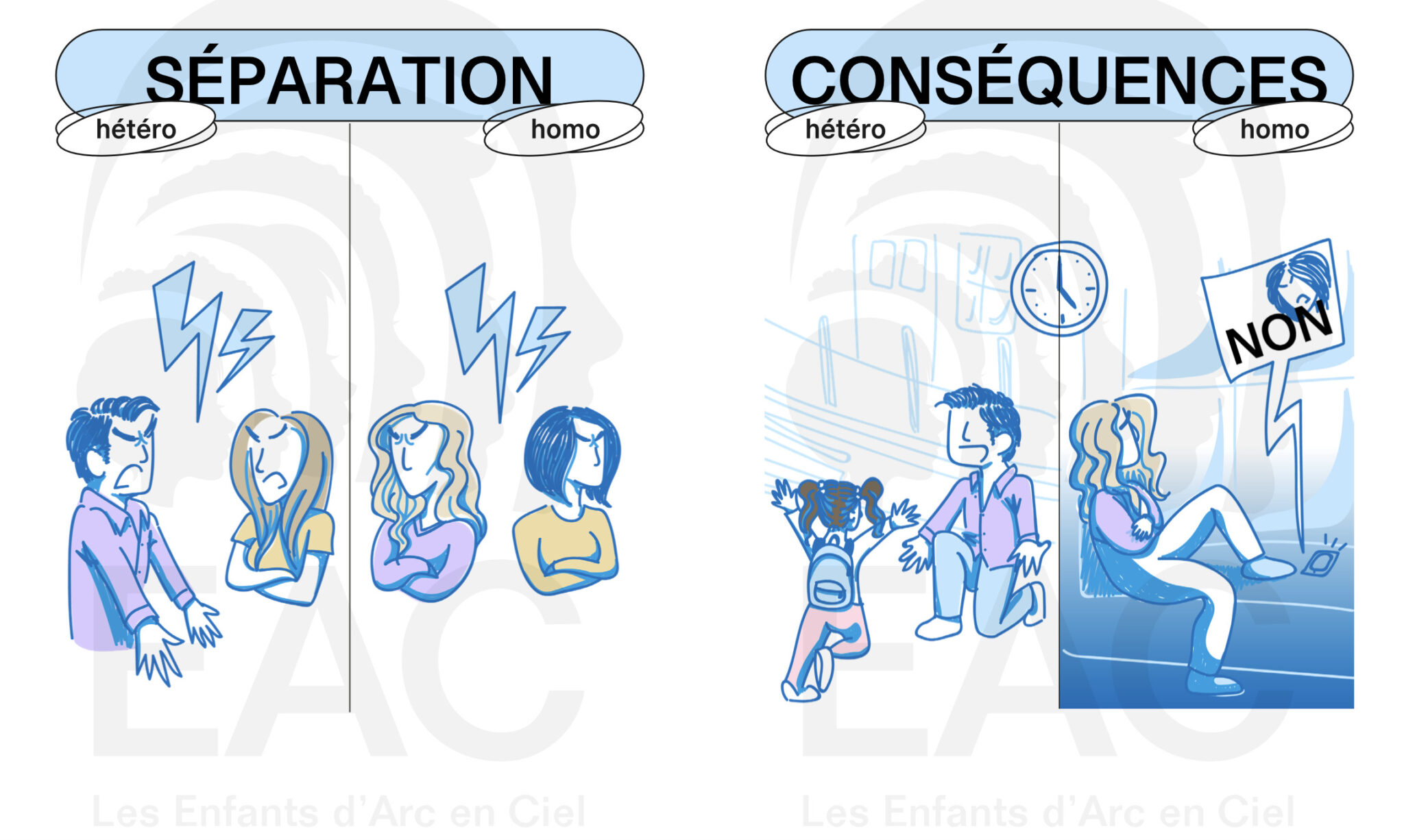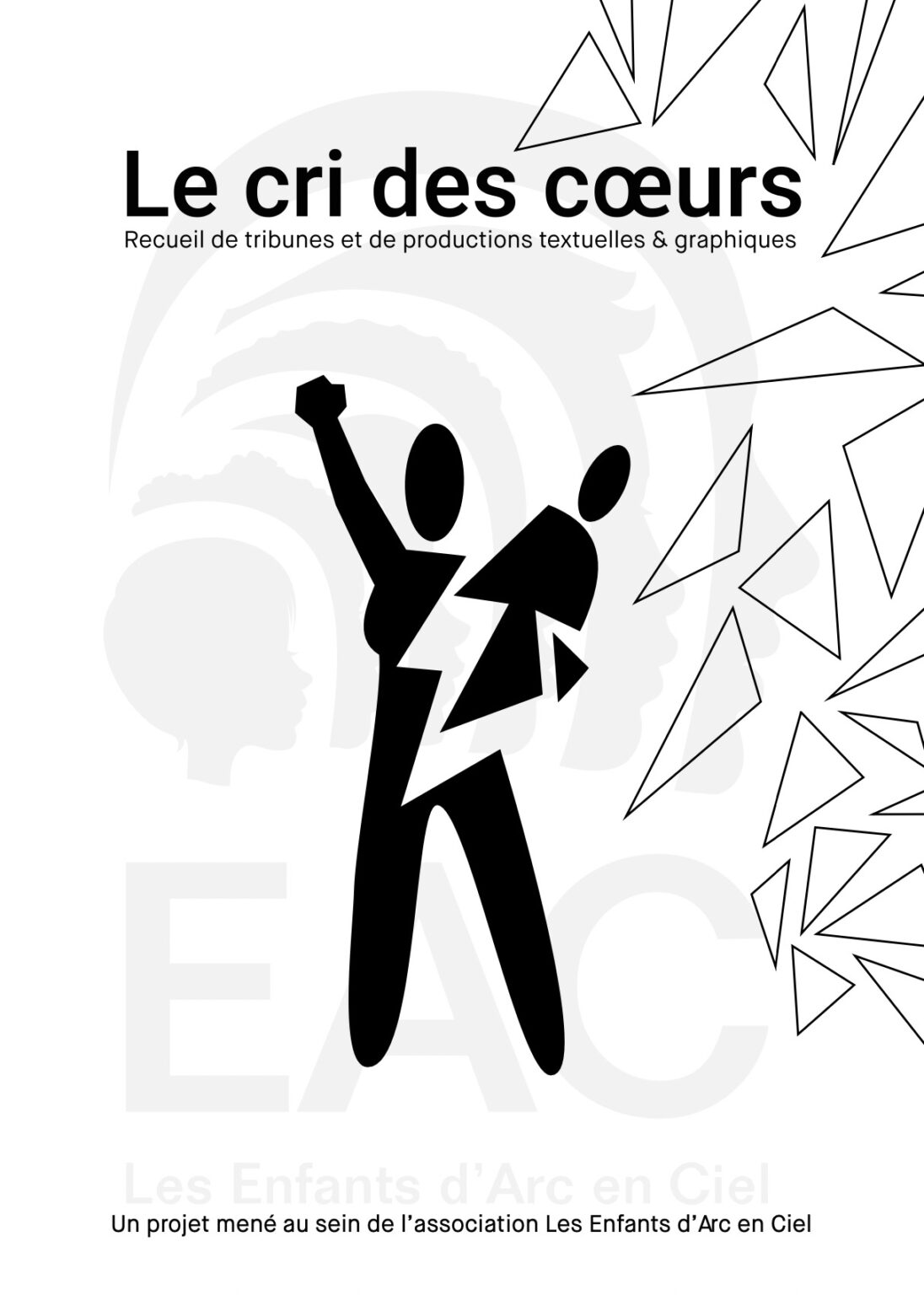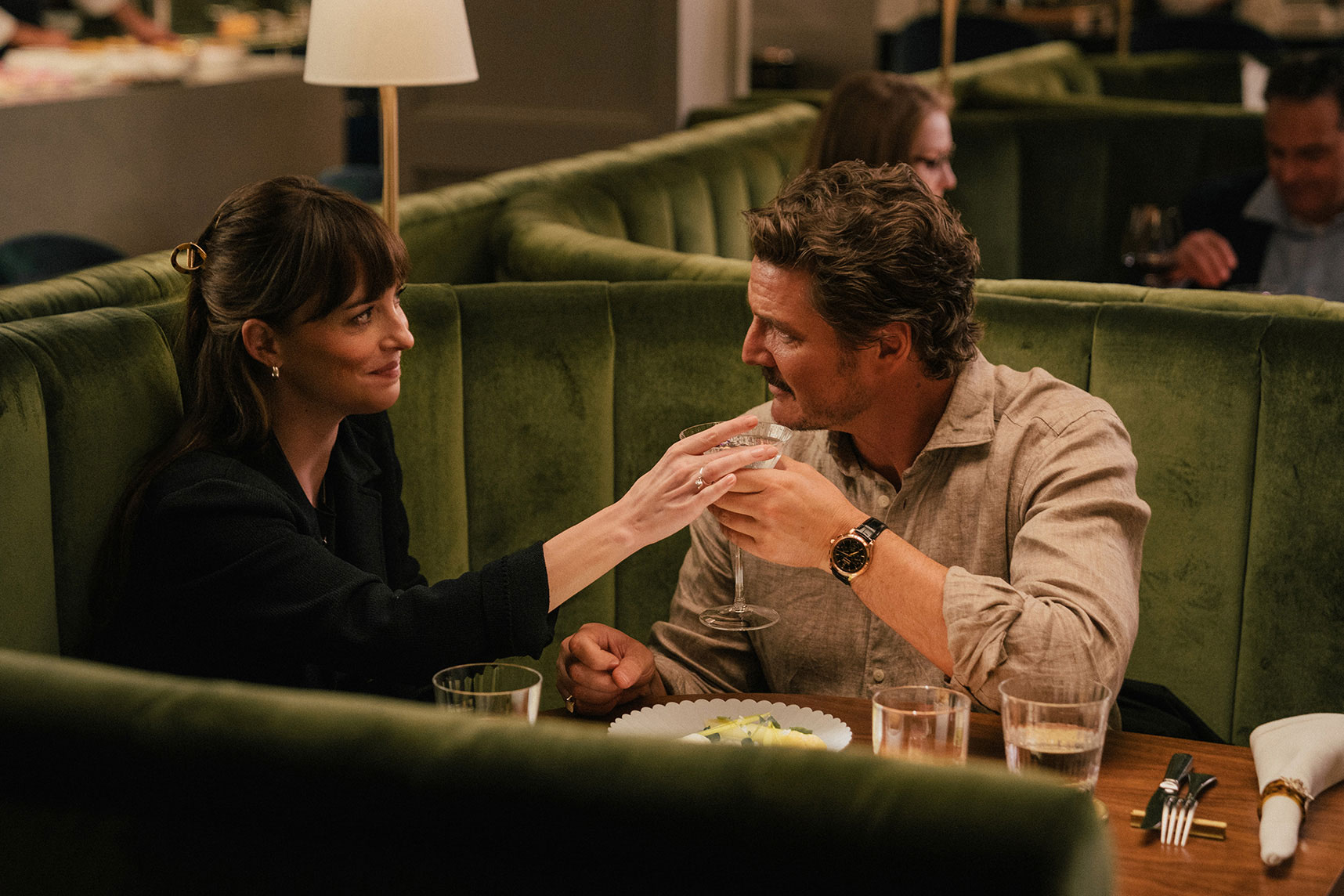I am the “second mother”, the “social mother”, the one who did not bring the child. And if they are full-fledged mothers for them, French law has forgotten them. In a relationship with another woman, they have often had to struggle with starting a family, going abroad for assisted reproduction or using a known donor for home insemination. But after a separation, some even have to fight not to be erased from their child’s life.
Incomplete law and divided families
This is the case withalexandra, 45 years. With her ex-partner, from whom she has been separated for three years, she had three children, aged 13, 11 and 10, conceived by PMA abroad. She carried the eldest and the youngest, and her companion, the youngest, Eva *. The two women share parental authority over their three children. Both residing in Neuville sur Saône, near Lyon, joint custody was possible after the separation. But the situation turned into a nightmare after an argument.
“It Was the Beginning of Hell”Alexandra tells us. “He got Eva back, telling me I had no right to her. She no longer wanted to take in our other two children. She closed the door on us for eight months. » Alexandra then begins legal proceedings. Her ex informs her that she is moving to another city, several hours away from her home. “He separates the brothers and abandons the other two children. It was very difficult for everyone.”.
Alexandra ends up getting Eva every other weekend and requests joint recognition in the aftermath, a process that requires the consent of the mother who gave birth. Meanwhile, she also files eight complaints against her ex-spouse because their daughter is not always left on the train on the weekends when Alexandra is supposed to have her. These complaints will only lead to a reminder of the law. “Since May I have started an adoption procedure without his consent, but my lawyer is struggling to get information. I am optimistic, I fit into all the boxes of the law. Once Eva is adopted, I will re-apply for custody of her. For me, our children are brothers and sisters. »
Only with the 2013 law that opens marriage to same-sex couples can a female couple obtain legal recognition of their parental status. For that, they had to start an adoption process so that the social mother, the one who has not given birth, can in turn be considered as the mother of the child. Lengthy, tedious and costly procedures, requiring going through the marriage box and subject to a court decision. Since 2021, with the extension of access to PMA obtained in 2021 through the revision of the Bioethics Act, filiation is now by joint advance recognition (RCA). Yet the law is far from covering all situations, starting from those of separated couples before obtaining adoption, where whoever brought the child has all the rights and can deprive the ex of seeing the child.

A struggle to see his son again
These disenfranchised and disenfranchised mothers testify today to lift this taboo and show their struggle. To highlight their experiences, the homoparental association Les Enfants d’arc en ciel publishes a series of testimonies of these forgotten mothers, through a collection, The cry of the hearts. Some have not been in contact with their baby for months or even years.
Angelic, 39, lives in Gujan Mestras, Aquitaine. With her ex, they had two children in 2012 and 2013. Each had one child. Married in 2015, they started the adoption procedure, but were unable to complete the process for economic reasons. In 2017 they end up separating. “Because I had no rights to our eldest daughter, my ex decided to deprive me of her. I saw her when she wanted. She blackmailed me, if I didn’t agree with you on something, it was “you won’t see the little one”. » A compromise is first found to complete the adoption process, but the couple ends up divorcing anyway without going through with it.
Angélique’s dispute then begins: her request for joint custody is rejected, she only obtains the right to visit the parents of her ex-partner, first for an hour and a half, then for three hours without the latter being present, and ends up winning every other weekend. The situation is difficult for her to live with, for her two children, of which one is torn between her two mothers in a conflict of loyalties, e the other was abandoned by one of the two.
“I really had a period with a lot of anger”confides Angelique. “Today is very sad for my eldest daughter. I tell her it’s not Mommy’s puppet. » At the end of five years of struggle to try to be part of her daughter’s life, Angelique remains determined and can count on the support of her wife, thanks to whom she is ” still awake “ : “When my daughter is older, my door will always be open for her. I don’t differentiate between my two daughters. »
“Because I had no rights to our eldest daughter, my ex decided to deprive me of her »
Injustices that persist for social mothers
If Alexandra testifies today, it is also because she believes that her suffering and that of other social mothers is not always considered: “Relatives don’t want to see you, they support you for a few months, but in the long run they tell you ‘don’t worry, your daughter knows you love her, she’ll always know’… but still happy! I fight for her, I want to see her, and today I have only crumbs. » An intolerable situation, especially as comparing it with that of a separated heterosexual couple, Alexandra discovers that the second parent cannot move overnight. His case falls into legal limbo. that those around you don’t always want to see. He hopes to raise awareness that the law is not complete: “Why couldn’t we be considered a mother regardless of the mode of conception? »
Angelique also denounces an unfair system: “I feel excluded, because I haven’t chosen the ‘right’ method to conceive my children, I’m a bit forgotten, I don’t have the same rights. But a straight couple, we don’t ask him how he got his child! »
Both find support and solidarity in Rainbow Children’s support groups with other members who, like them, are confronted with the absence of parental rights after a separation. They consider themselves almost lucky when faced with family situations that are much more dramatic than their own, in which the mothers have not seen their child for several years.

Photo credit: Bethany Beck via Unsplash
* The name has been changed.
More articles about
Rights of LGBTQI+ people
-
In the United States, Congress legislates to protect marriage for all
-
Qatar 2022: Sandrine Rousseau criticizes the lack of courage of the French team
-
Emma Corrin (The Crown) wants more gender-neutral categories in award shows
-
We take you to another beauty salon, which takes care of all bodies
-
At the Denmark-Tunisia match, the former Danish prime minister wore a rainbow suit
Source: Madmoizelle
Elizabeth Cabrera is an author and journalist who writes for The Fashion Vibes. With a talent for staying up-to-date on the latest news and trends, Elizabeth is dedicated to delivering informative and engaging articles that keep readers informed on the latest developments.




